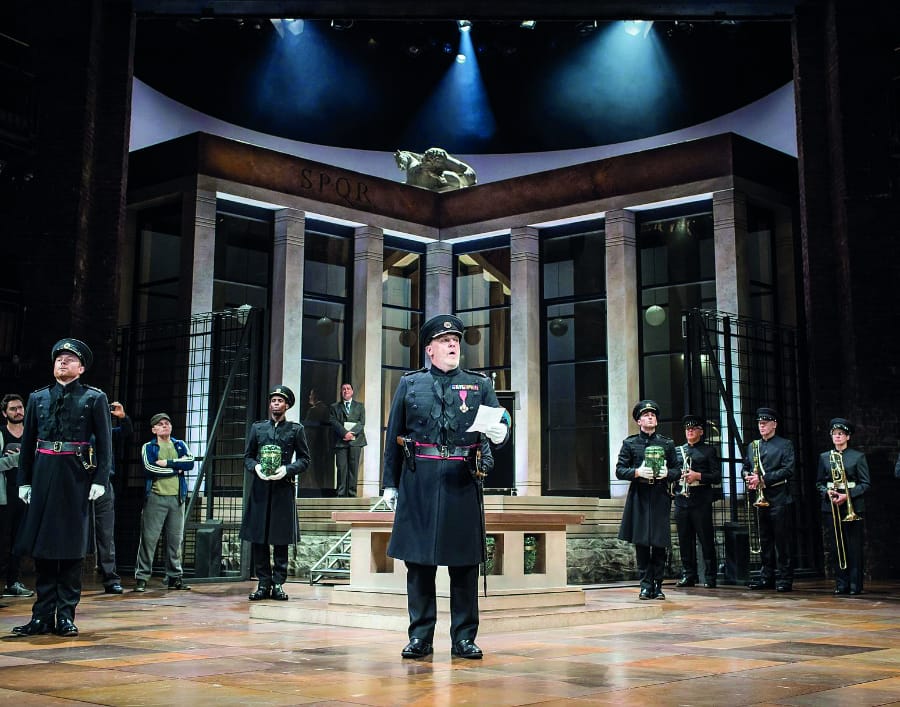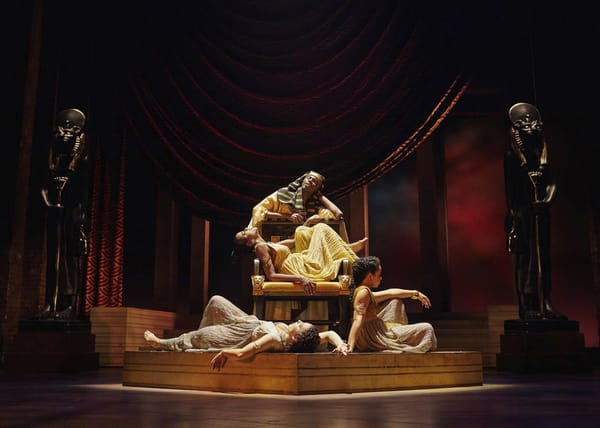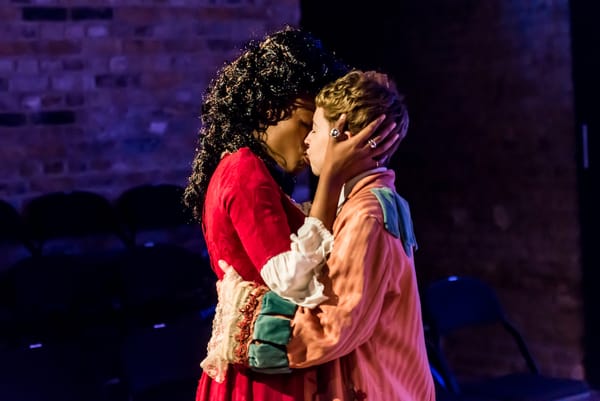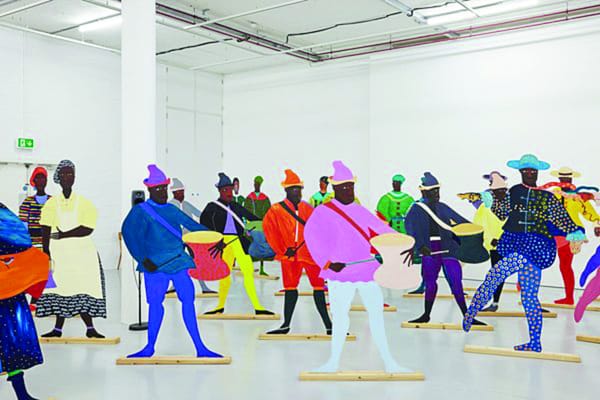Blood and guts (and laughter) in ancient Rome
Titus Andronicus hits the Barbican stage with a bang, bringing severed limbs aplenty, but also reminding us of the similarities between past and present.

Titus Andronicus, one of Shakespeare’s Roman plays, has this fall reached the London stage at the Barbican. It is the story of the fictive Roman general Titus Andronicus, who returns to Rome after having entrapped Tamora, Queen of the Goths, and her three sons. The eldest son will soon be killed, and a series of revenges are set in motion. The play follows the struggle and strife for ultimate revenge between the emperor of Rome, the Goths, and the Andronicus family; a violent journey characterized by sorrow and a couple of beheadings.
The play starts subtly. Actors are crossing the stage. Their appearance, with their relaxed posture and casual clothing, make them easy to mistake as people working on the set. As the number of actors increases it becomes clear that this is a part of the play, and soon they are all dancing. The dance becomes a battle which sets the hostile atmosphere that will remain throughout the play’s three hour run-time.
“The hostile atmosphere is established at the start, and continues for the three-hour runtime”
The first act feels long. Despite all the events – or maybe just because of them – I left the first act wondering if this was not only the end of the act, but of the play itself. It is a well needed pause, and with some time to reflect over all the impressions from the first act, I re-entered the theatre curious, but also anxious, pondering what was to come. The second act was much more enjoyable. The intensity grew as the play progressed – interactions with the audience, more and more complicated revenges, and a severed limb here and there kept the audience more than awake.
There is a duality of emotions and how the actors portray their characters in Titus Andronicus. An example is Saturninus, the man who in the beginning is elected as the next emperor of Rome. With his political speeches and classy blue suits Saturninus resembles any modern day politician. The most powerful man of the country is, however, ridiculed almost throughout the whole play. The charismatic and secure man in front of the camera’s lens is, behind closed doors, just another insecure fool in Superman pyjamas. The contrast between the public and private way of acting among the characters is a recurring theme: all the characters, including Titus himself, act strangely from time to time, providing the audience with a great laugh, but also giving us opportunity to reflect on the acts of our own era’s influential people.

The whole play is set in an environment that reminds us more of our own time than historical Rome: cameramen run around capturing political events, people in the crowd take selfies, and a “Deliveroma” man delivers messages. The familiar setting makes the play, with all its horror and brutality, more relatable for the audience, and allows us to compare and question the similarities and differences between our modern society and the play itself. There is a comfort in knowing that, despite how terrible the political situation in the world might seem, we will never reach the same level of insanity as in Titus Andronicus. But if we dig deeper in our analysis we soon see how the number of similarities between the periods of time increase while the differences decrease. Is our society not also full of political power games, revenge, and horror? Do the most powerful leaders today not have ridiculous games that might lead to an even bigger bloodbath than in this play? Due to its modern day setting and immortal themes, Titus Andronicus gives us the opportunity to reflect over our modern day life while keeping all the factors that makes it an enjoyable play.
“The play reminds us more of our own time than ancient Rome”
The two things that stick in my memories of the play are brutality and, surprisingly, laughter. Laughter is a regular reaction from the audience, probably just as regular as the killing. Titus Andronicus is a truly entertaining play: the acting, the interaction with the audience, the small comments – it all adds up to a humour that is necessary in order to deal with all the death and unpleasant events of this play. Whether you want to analyse the political situation and acts of the characters in this play, or went purely just to have a good time, Titus Andronicus has something for you. Though I would not recommend it if you’re not the biggest fan of blood, despite the fact that it’s pretty morbid from time to time, it remains the funniest tragedy I have ever seen.
4 Stars
Where? Barbican When? Until 19th January How Much? From £10









